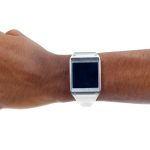With advancements in technology, the healthcare domain is constantly evolving. One area where this advancement is particularly significant is in remote patient monitoring (RPM), with smartwatches leading the charge. Wearable technologies are not just about fitness tracking and lifestyle management anymore. They have started playing a crucial role in patient care, data tracking, and overall health management. This article will delve into how smartwatches are transforming remote patient monitoring in the UK.
Revolutionizing Patient Care with Wearable Technology
The advent of wearable technology, notably smartwatches, has completely transformed the healthcare landscape. These devices are not just convenient; they offer crucial health metrics that help both patients and healthcare providers manage health conditions effectively.
A lire aussi : What Advances Are Being Made in Organic Electronics for Flexible Displays?
Smartwatches now have the capability to track essential health data such as heart rate, blood oxygen levels, sleep patterns, physical activity levels, and even stress levels. This technology allows healthcare providers to remotely monitor their patients’ health in real-time, enabling them to provide proactive and personalized care. It’s like having a mini medical lab on your wrist, giving you insights into your health like never before.
Instead of waiting for periodic check-ups, healthcare professionals can now rely on the continuous stream of data provided by these devices. This timely information can help in early detection of potential health problems, leading to quicker interventions. For patients, this offers reassurance, as they know that their health is being monitored consistently.
Avez-vous vu cela : How Is Nanotech Improving Air Filtration Systems in UK Public Transportation?
The Role of Digital Health Data in Remote Patient Monitoring
Data is the lifeblood of the digital world, and it’s no different in the healthcare sector. One of the most significant advantages of wearable technology such as smartwatches is the wealth of data they produce. The constant stream of digital health data these devices generate is invaluable for RPM.
Every heartbeat, step, or minute of sleep logged by a smartwatch contributes valuable data that can be analysed and used to understand a patient’s health. From monitoring basic vital signs to detecting irregular heart rhythms, these devices can provide a comprehensive health snapshot of a patient over time.
Take heart rate monitoring for example. A sudden spike in the heart rate could suggest a strenuous activity or stress, while a continuous low heart rate could indicate a potential health problem. By monitoring this data in real time, healthcare providers can detect abnormalities and irregularities that might otherwise go unnoticed.
Enhancing Patient Engagement and Compliance through RPM
Engagement and compliance are key to effective healthcare delivery. However, getting patients to adhere to treatment plans can be challenging. This is where smartwatches can make a significant difference. By giving patients direct access to their own health data, these devices encourage engagement and promote better compliance to treatment plans.
Imagine a patient with a heart condition. With a smartwatch, they can regularly monitor their heart rate and receive alerts if it goes beyond the set limit. This not only keeps the patient engaged but also prompts them to take necessary actions, thereby increasing compliance with their care plan.
Smartwatches also help in fostering a sense of responsibility towards one’s own health. The ability to track and visualise progress can serve as a motivator for patients to stick to their healthcare plan.
Impact of Smartwatches on Healthcare Providers
While patients are the primary beneficiaries of smartwatch technology, healthcare providers also reap significant benefits. The most significant being the ability to monitor their patients remotely in real-time, without the need for physical visits.
Using data from smartwatches, providers can keep a close watch on their patients’ health, which is especially beneficial for those managing chronic conditions. The continuous stream of data allows for timely interventions, reducing the risk of complications.
Moreover, this technology also helps in reducing the burden on healthcare systems. It can potentially reduce the need for hospital visits and readmissions, thereby saving precious time and resources. In a time where healthcare resources are strained due to increasing demand, this cannot be overemphasised.
Future of Remote Patient Monitoring with Smartwatches
With the booming popularity of wearable technology, it’s clear that smartwatches are here to stay. As the technology continues to advance, these devices are likely to become even more integrated into the healthcare system.
We are already witnessing the use of smartwatches in clinical studies and trials. For example, a study conducted in the UK used Apple Watch to monitor symptoms in patients with Parkinson’s disease. The study showed promising results, demonstrating that wearable technology can be a powerful tool in managing and studying disease progression.
In the future, we can expect to see smartwatches with even more advanced health monitoring features, such as blood glucose monitoring, hydration levels, and even stress detection. This will undoubtedly further enhance the capabilities of remote patient monitoring, leading to more personalised, effective, and timely care. Given these advancements, it’s clear that smartwatches will continue to play a pivotal role in transforming healthcare delivery and patient monitoring in the UK.
Impact of Machine Learning and AI on Remote Patient Monitoring
Machine learning and Artificial Intelligence (AI) are revolutionising many industries, and healthcare is no exception. These technologies are being integrated with wearable devices such as smartwatches, transforming the way remote patient monitoring is carried out in the UK.
Smartwatches equipped with AI have the capability to process the large volumes of health data generated by the wearables. An important advantage of AI is its ability to identify patterns and trends in data. By analysing the data collected by the smartwatch, AI algorithms can assist in diagnosing conditions like atrial fibrillation by detecting irregularities in the heart rate.
Moreover, machine learning can help predict potential health issues before they become serious. By analysing trends and patterns, it can predict if a patient is likely to have a heart attack or other serious health events, enabling healthcare providers to intervene before it’s too late.
Integration of AI and machine learning with smartwatches also brings about increased personalisation in healthcare. The AI algorithms can learn from the individual health data of the patient and adapt to their specific needs, providing personalised care plans and recommendations.
For example, if a patient’s blood pressure tends to rise during specific periods, the AI can detect this trend and alert the patient or their healthcare provider. It can also provide recommendations on how to manage this blood pressure spike, such as suggesting lifestyle changes or medication adjustments.
Privacy and Security Concerns in Remote Patient Monitoring
While the transformation of remote patient monitoring by smartwatches offers numerous benefits, it also raises concerns around privacy and security of health data. Since these devices are connected to the internet, they are susceptible to cyber threats.
In the UK, healthcare providers and regulators are taking steps to address this issue. Data encryption methods are being used to secure data during transmission from the smartwatch to the healthcare provider. Meanwhile, data stored in the cloud is protected through advanced security measures.
Moreover, stringent data privacy regulations are in place in the UK, such as the Data Protection Act and the General Data Protection Regulation (GDPR), which mandate the protection of sensitive personal data, including health data. Any breach of these regulations can lead to heavy penalties.
However, patients also play a crucial role in ensuring the security of their health data. They need to be aware of the security settings on their smartwatches and ensure they are using secure networks when transmitting their health data.
Conclusion
The emergence of smartwatches has indeed brought about a significant transformation in the way remote patient monitoring is conducted in the UK. It has not only made healthcare more accessible but also more personalised and proactive.
While the integration of machine learning and AI with smartwatches is proving to be a game-changer, it is equally important to address the privacy and security concerns that come with it. As we look ahead, we can expect to see smartwatches becoming an even more integral part of healthcare, offering more advanced, real-time health monitoring capabilities, and improving patient outcomes.
The future of healthcare is undoubtedly digital, and smartwatches are set to be at the forefront of this revolution. With continuous advancements in this field, the possibilities of enhancing remote patient care are immense, promising a healthier future for all.
















